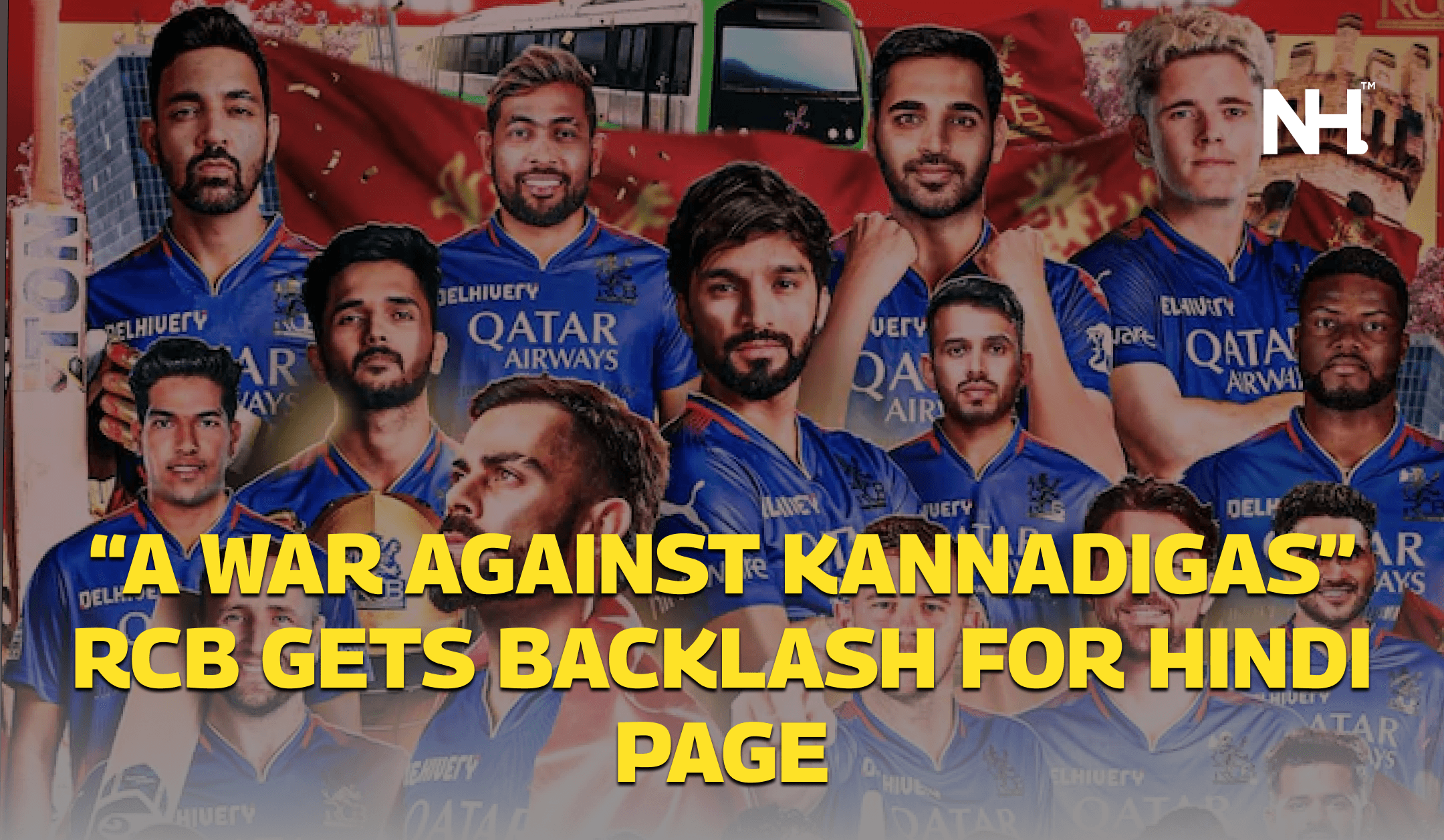Royal Challengers Bengaluru (RCB), one of the Indian Premier League’s (IPL) most-followed franchises, is caught in a linguistic storm. The backlash erupted after the team launched a dedicated Hindi X (formerly Twitter) account and posted content in Hindi, sparking debates about linguistic representation and cultural sensitivity.
The Controversy
The uproar began when the newly-launched Hindi handle shared a photo announcing the 2025 team lineup in Hindi and featured a video of star player Virat Kohli addressing fans in the language. While the page has garnered over 2,500 followers, fans accused the franchise of undermining Karnataka’s linguistic identity, urging the management to reconsider its decision.
“It’s disheartening to see our Bengaluru-based team using Hindi for communication,” posted a fan. “RCB represents Kannada culture, and this move feels like a betrayal of our identity.”
Another user declared, “If they still want the Hindi handle, they should remove Bengaluru from the franchise name.”
Local fans were quick to point out the irony: teams like Rajasthan Royals or Delhi Capitals do not use Kannada in their communication, so why should RCB cater to Hindi-speaking audiences?
Support for the Hindi Initiative
Amid the criticism, some fans defended the move, highlighting RCB’s nationwide appeal. “RCB has supporters across India, including Hindi-speaking regions. A Hindi page allows the team to connect with a broader audience,” argued a user.
This perspective, however, failed to pacify detractors, who accused the team of pandering to the idea of Hindi as a unifying language, a contentious issue in India’s diverse linguistic landscape.
Multilingual Strategy Amid Backlash
Interestingly, RCB had recently launched a dedicated Kannada Instagram page on Karnataka Rajyotsava, which saw an overwhelming response, amassing over 1.6 lakh followers within a month. This move was widely celebrated as a nod to the team’s local roots and cultural pride.
Expanding on this success, RCB announced plans to roll out content in Hindi, Telugu, and other regional languages, including Malayalam, Punjabi, and Bengali, by 2026.
Rajesh V Menon, Vice President and Head of RCB, addressed the controversy, stating, “RCB is committed to inclusivity and connecting with fans across India. Our aim is to embrace linguistic diversity while staying true to our Bengaluru origins. Greatness comes to those bold enough to challenge the status quo, and we believe this initiative reflects that spirit.”
The team’s new strategy includes using AI technology to dub over 1,000 videos annually, delivering seamless regional content.
Why Now?
The timing of the Hindi account’s launch, soon after the IPL Mega Auctions, added fuel to the fire. Critics viewed it as a calculated move to prioritize Hindi over Kannada, reigniting debates over Hindi imposition in non-Hindi-speaking regions.
The backlash also brought attention to deeper questions of representation. Fans asked why Bengaluru—a city synonymous with Kannada culture—should adopt Hindi for its IPL franchise, while teams from Hindi-speaking states don’t reciprocate with Kannada or other regional languages.
What’s Next for RCB?
With IPL 2025 approaching, the team faces a challenging task: balancing local pride with national outreach. The controversy underscores the sensitive nature of linguistic identity in India, especially for a team whose name carries the essence of its home city.
As the debate rages on, RCB’s management must tread carefully. Their response will determine whether the franchise can mend ties with its fiercely loyal Kannada-speaking fanbase while maintaining its pan-Indian appeal.
The road to IPL 2025 has already started with a controversy, and as one fan put it, “RCB must remember—it’s Born in Bengaluru, not Bollywood.”



















































































